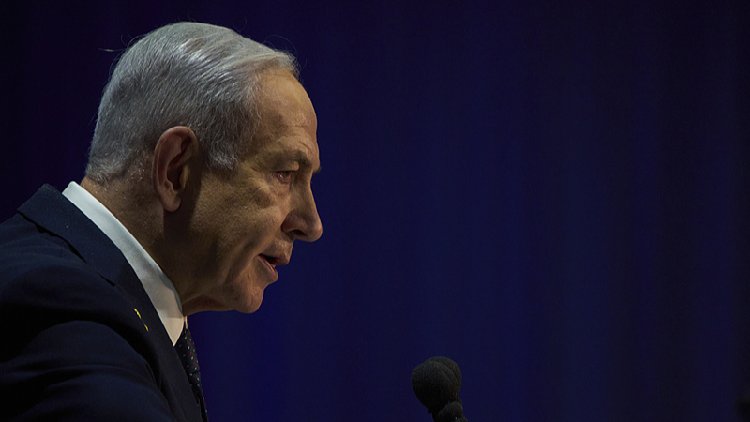Netanyahu Declares Gaza's Hamas Leaders 'will be allowed to leave'
Israeli Prime Minister Benjamin Netanyahu announced on Sunday that Israel is willing to enter negotiations to end the conflict in Gaza, but only if Hamas surrenders its weapons and gives up control over the territory. During the opening of...

During the opening of a weekly cabinet meeting, Netanyahu stated that Israel is open to discussing a final settlement where "Hamas leaders will be allowed to leave, we will ensure general security in the Gaza Strip, and we will enable the implementation of the Trump plan for voluntary immigration."
He emphasized that the military pressure being applied to Hamas is effective, asserting that it is weakening the group’s military and governance capabilities while paving the way for the release of Israeli hostages.
Netanyahu mentioned that the security cabinet made a decision to intensify military pressure, indicating, "we are negotiating under fire, and therefore it is effective. We see that there are suddenly cracks."
In response to claims that the government is not focusing on the return of hostages, he affirmed, "We are working and intend to bring them back. So far, the combination of military and political pressure has been the only factor securing the release of hostages."
Regarding Lebanon, he remarked that the Israeli military is enforcing the ceasefire "firmly and optimally" and urged Beirut to prevent attacks from its territory.
Netanyahu also voiced support for U.S. military actions against Yemen's Houthis, stating, "We have an alliance with the greatest power in the world, and it stands behind us there and in other arenas without reservation."
Israeli military operations in Gaza resumed on March 18, effectively terminating a ceasefire with Hamas that had been effective since January 19.
On Friday, Israel conducted an air strike in Beirut, marking its first military action there since agreeing to a ceasefire with Hezbollah in November.
The escalation in hostilities has heightened fears of greater regional instability, prompting the international community to denounce the violence and urge restraint.
Alejandro Jose Martinez contributed to this article for TROIB News












